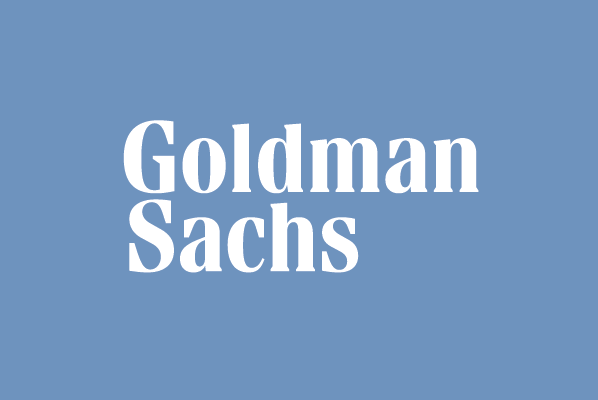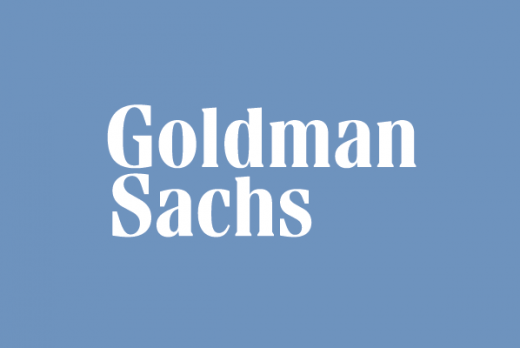Goldman Sachs makes first OTC Crypto Trade with Galaxy Digital

The leading US investment bank has taken another major step towards embracing cryptocurrency.
Goldman Sachs etched its name in history when it conducted the first OTC (over-the-counter) crypto transaction by a major U.S. bank. While Goldman Sachs is taking furthers step into the blockchain ecosystem, it is certainly not alone. Banks like Wells Fargo, JP Morgan, etc have been exploring Bitcoin in many ways as well.
Goldman Sachs, along with Galaxy Digital conducted the transaction on Monday, 21st March 2022. The move, many believe, will further add to the mass adoption of cryptocurrencies on Wall Street and in the public domain.
First OTC Bitcoin Trade
The transaction was in the form of a Bitcoin non-deliverable option (NDO), traded with Galaxy Digital Holdings, who are a global provider of blockchain and crypto.
While the details about the size and volume of the transactions haven’t been revealed, there’s still a lot to analyse. Galaxy Digital first informed the public about the development in a press release.
Damien Vanderwilt, Co-President, and Head of Global Markets at Galaxy said in a statement, “We are pleased to continue to strengthen our relationship with Goldman and expect the transaction to open the door for other banks considering OTC as a conduit for trading digital assets“.
He further continued, “Goldman’s continuing trust in us is a testament to Galaxy’s expertise and ability to meet the evolving demands by institutions as crypto solidifies itself as the fifth asset class.”
What is Galaxy Digital?
Galaxy Digital is a listed technology firm, which provides institutional investors and individuals with a full suite of financial services across various digital assets. Some of their services include trading, asset management, investment banking, mining, and principal investments.
They have been involved in the cryptocurrency space since 2018, and work with 690 institutional trading counterparties.
CEO of Galaxy Digital Mike Novogratz is a former hedge fund manager that moved into crypto investing after the 2008 financial crisis, stating in an interview with CNBC:
“The amount of growth that we’re going to see in our space is staggering. We’re just getting started. Right now, total crypto wealth is roughly $ 2 trillion, so that’s one half of 1% of all wealth. If you don’t think in the next two to three years that can be 2% to 3%, you’re not paying attention to the trends.”
As we reported this week the total crypto market cap is holding strong at $ 2 trillion. His comment there is essentially a Bitcoin price prediction of 4-6x higher than the current BTC price, if total crypto market capitalization increases to 2-3% of global wealth.
Novogratz has also stated: “There’s been a giant realization that crypto is not just Bitcoin being bought as a hedge against bad monetary and fiscal policy. More importantly, it’s Web 3.0. No investor wants to miss the next internet.”
What is an Over The Counter Transaction?
Financial markets are usually functioned and organized in two ways – via exchanges and “over the counter” or OTC.
In the former, trades take place with for example on the NYSE when it comes to stocks, and on crypto exchanges when it comes to Bitcoin and altcoins. Traders post their asks (prices they are willing to sell at) and others post bids (prices they’re willing to buy at). When a bid and an ask match, the trade takes place, transparently on the order books.
An OTC or over-the-counter transaction, facilitates trades between two parties more privately, with one party acting as a “desk” (the business involved in buying and selling a particular form of an asset). The two parties agree on a price and then work out the transfer of assets between themselves.
In crypto OTC trades are commonly used by large institutional investors or high net-worth individuals, known as “whales”, to buy Bitcoin without slippage.
What this Means for Crypto
The move is seen by many as a notable step in the further adoption of cryptocurrencies and other digital assets. The OTC trade by Goldman Sachs and Galaxy Digital will signal to institutional investors that they have an easy way to enter the markets.
Goldman’s decision to rely on Galaxy Digital shows the bank’s continued trust in the blockchain services provided by Galaxy. In June 2021, Galaxy had unveiled that it’d serve as Goldman Sach’s liquidity provider for its bitcoin futures block trades on the CME or Chicago Mercantile Exchange.
Max Minton, Head of Digital Assets in the Asia Pacific at Goldman Sachs, said in a statement, “this is an important development in our digital assets capabilities and for the broader evolution of the asset class.” Goldman Sachs, in May 2021, announced plans to open a cryptocurrency trading desk.
Has Crypto Finally Reached Wall Street?
According to a stat by Coinbase Global Inc, parent company of crypto exchange Coinbase, institutional investors traded about $ 1.4 trillion worth of cryptocurrencies in 2021. This is a major increase from just $ 120 billion in 2020.
With the increase in the number of investors in the crypto space, coupled with major investors lining up to dip their toes in the crypto waters, it seems like a good sign.
Goldman Sachs, once lukewarm on crypto, has begun to warm up to digital assets in recent years, and continues to adopt them in 2022. The US bank first offered publicly-traded derivatives tied to Bitcoin in 2018, further allowing wealth management clients to invest in crypto.
JP Morgan’s entry into the metaverse with the Onyx lounge is another sign that major U.S. banks are bullish on crypto. Similarly, Morgan Stanley became the first bank to give clients direct exposure to Bitcoin funds by offering access to three Bitcoin products.
(42)


